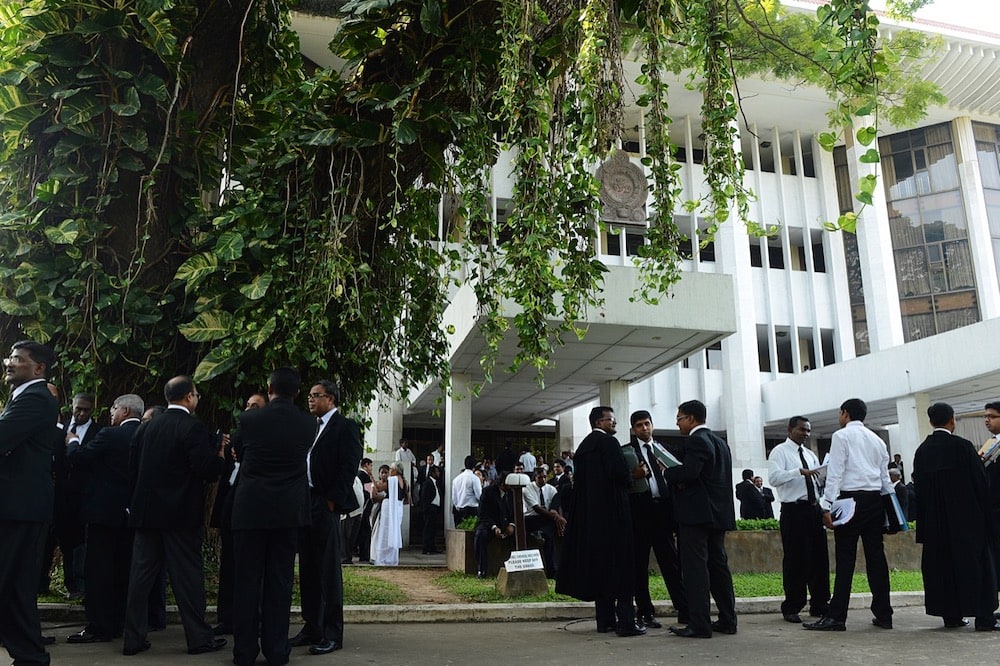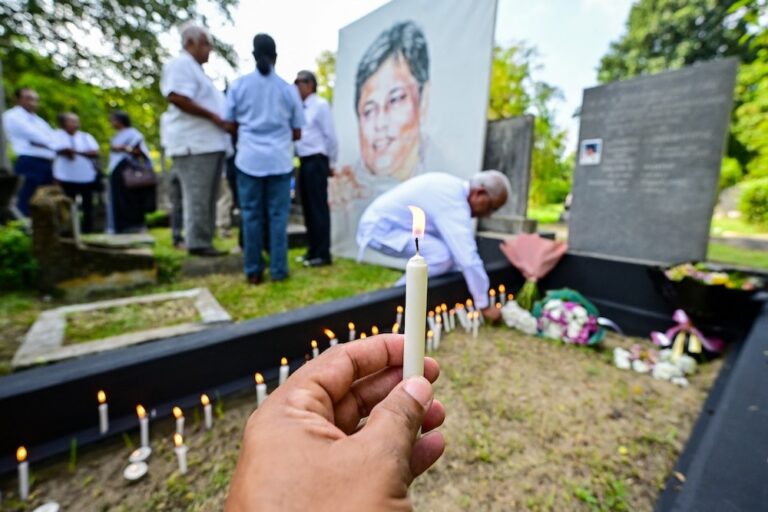Sri Lankan comedian Nathasha Edirisooriya was arrested based on allegations that she had made derogatory remarks about Lord Buddha and Buddhist Girl's Schools.
This statement was originally published on globalvoices.org on 6 June 2023.
The application of hate-speech laws have been selective in Sri Lanka
The island nation of Sri Lanka is still recovering from a severe economic crisis and political upheaval. However, a new public debate has embroiled the country about the issue of free expression, the limits of humour, and the laws that govern discourse on religion.
On May 27, 2023, Sri Lankan stand-up comedian Nathasha Edirisooriya was arrested at the Bandaranaike International Airport under the ICPPR Act while trying to leave the country. According to reports, she was arrested based on allegations that she had made derogatory remarks about Lord Buddha and Buddhist Girl’s Schools during her performance in a comedy show titled ‘Modabhimanaya’, which took place at a college auditorium in Colombo in April.
Over the past few weeks, the YouTube video containing the show went viral and triggered a wave of outrage among some viewers. Hate speech, harsh criticism of Edirisooriya online, and death and rape threats followed. Later, Edirisooriya released a public video offering her sincerest apologies for her previous remarks.
Nevertheless, formal complaints were lodged against her with the Criminal Investigation Department (CID) by the Commissioner of Buddhist Affairs and some conservative Buddhist monks, and the video was removed from social media platforms. On May 28, 2023, she was remanded until June 7, and CID launched an investigation aimed at identifying witnesses who were present during the specific show in question and recording their statements.
Subsequently, on Wednesday, May 31, 2023, Bruno Divakara, the creator of the YouTube channel ‘SL-VLOG’ who was suspected of being involved with the Colombo Comedy Central YouTube channel, was also arrested by the Computer Crimes Investigation Division for his alleged role in broadcasting Edirisooriya’s video. Divakara was charged with organizing gatherings, as well as aiding and abetting Nathasha Edirisooriya’s performance. Similar to Edirisooriya, he was remanded until June 7.
Twitter user Chameera Dedduwage from Colombo tweeted:
On May 29, 2023, Buddhist Ven. Saddharathana Thero was arrested for making hateful comments targeting Nathasha Edirisooriya and Pastor Jerome Fernando, who is also under CID investigation for allegedly making comments disrespectful to religions. Sri Lanka’s religious affairs Minister Vidura Wickramanayaka mentioned that the existing laws are insufficient to address such instances of hate speech and that Sri Lanka is planning a new law to stop the increasing instances of blasphemy and online hatred.
Widespread condemnation
Sri Lankans at home and abroad condemned the arrests as attempts to curb free speech.
Historian Shamara Wettimuny commented:
Human rights activist Ruki Fernando tweeted:
The rights-based organisation the Centre for Policy Alternatives (CPA) said in a statement:
Poet Imaad Majeed tweeted:
Dinushika Dissanayake tweeted:
Jurist, author and editor Sanjaya Wilson Jayasekera made this appeal:
Using the ICCPR Act to stifle freedom of speech
Nathasha Edirisooriya and Bruno Divakara both were arrested under the provisions of the controversial International Covenant on Civil and Political Rights (ICCPR) Act. They are not the first persons to be arrested under the act.
Musician Rehab Mahamoor tweeted:
In a statement, Amnesty International expressed concern that the ICCPR Act has been repetitively used to restrict freedom of expression in Sri Lanka. Civicus Monitor, a research tool tracking the state of civil society and civic freedoms across 196 countries, has documented several instances of the ICCPR Act being misused in Sri Lanka, particularly to target minority communities.
An editorial at the Daily FT titled ‘No right to laugh’ states:
The application of hate speech laws has been selective in Sri Lanka showing a clear pattern of the law being used to intimidate minority communities while the majority Sinhala Buddhists, their clergy and political leaders incite violence and spread hate speech with impunity.



